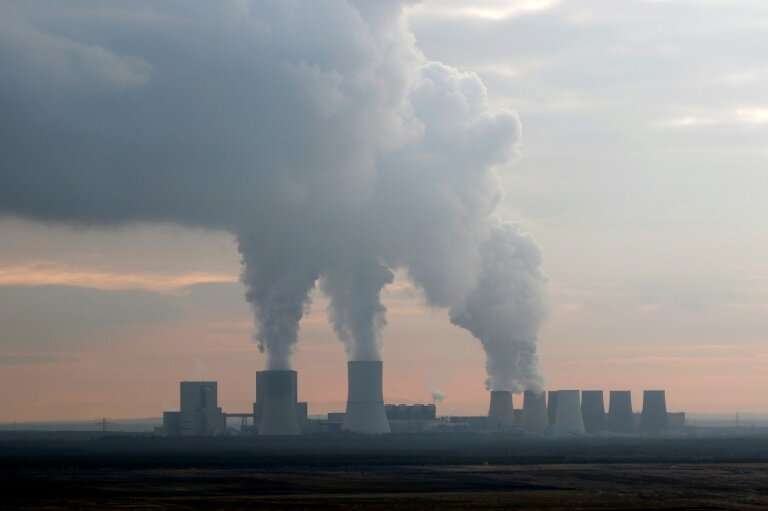Germany's government acknowledged last year that it would not meet a 2020 target to cut greenhouse emissions by 40 percent compared with 1990 levels
Germany's powerful BDI industry federation Thursday urged Berlin to trim its ambitions for cutting greenhouse gas emissions, saying the goal of close to zero by 2050 is unrealistic.
"We can't reach highly ambitious climate protection targets by lowering our heads and charging forward, but only by harmonising them with economic reality and security of supply," BDI president Dieter Kempf said in a statement.
Rather than almost totally eliminating carbon dioxide (CO2) emissions, "a CO2 reduction of 80 percent is manageable with today's technology—if the political management is optimal," Kempf added.
Such a target would require investments of around 1.5 trillion euros ($1.7 trillion) over the coming 30 years, the BDI calculated.
Meanwhile the industry federation argued Berlin is falling behind in specific areas like energy-saving building renovations and had allowed electricity prices to rise too high.
Chancellor Angela Merkel's fourth government acknowledged last year that it would not meet a 2020 target to cut greenhouse emissions by 40 percent compared with 1990 levels.
By last year, output of the gases had fallen just 30.6 percent, according to an environment ministry report published Tuesday.
But Germany still hopes to bring emissions down 55 percent by 2030 and 95 percent by 2050.
Among other measures, Berlin plans to eliminate power generation from coal by 2038, and Environment Minister Svenja Schulze has promised a wider climate plan "in the course of this year".
© 2019 AFP
























